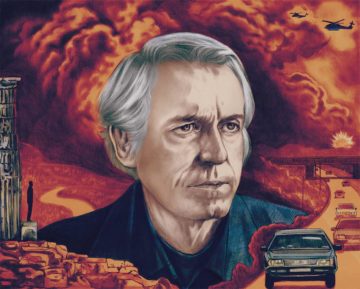Siddhartha Deb in The Nation:
 An assassin works from a partial understanding of the world. If not literally a hashishi, as suggested by the word’s etymology, an assassin must nevertheless see the world in tunnel vision, his victim viewed through the lens of a scope. The vast, complex network of humanity to which he and his victim belong, with contending narratives and blurred individual motives, cannot be allowed to exist. To do so would be to fail as an assassin.
An assassin works from a partial understanding of the world. If not literally a hashishi, as suggested by the word’s etymology, an assassin must nevertheless see the world in tunnel vision, his victim viewed through the lens of a scope. The vast, complex network of humanity to which he and his victim belong, with contending narratives and blurred individual motives, cannot be allowed to exist. To do so would be to fail as an assassin.
A Don DeLillo novel grasps both the assassin’s monomania and the contradictory, counterintuitive world of which it is a part. It is capable of displaying fidelity to both perspectives, brushing one against the other to edge its way toward a fictional truth that neither can uncover on its own. Six novels published in the 1970s established this principle, but the approach truly came into its own only with Libra (1988), DeLillo’s ninth novel. “Hashish. Interesting, interesting word,” a character says to Lee Harvey Oswald as the novel uncoils toward its climactic moment in Dallas with the Kennedy assassination. “Arabic. It’s the source of the word assassin.”
More here.
